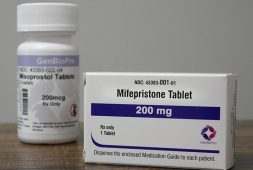
When using statins, tons of negative messages are found on social media. People’s opinion could be swayed by these and go against the advice of healthcare professionals. In fact, it has been found that women are especially more likely to reject these cholesterol-lowering medications. This was found in a recent study made.
Studies show that one in five people who are at high risk of heart attack or stroke because of conditions such as diabetes, atherosclerosis, or high LDL cholesterol have already said no to taking a statin, despite what their doctors have recommended as per a new Harvard study published on February 28 in JAMA Network Open.
The findings of this study emphasize the experts’ concern on the number of people who decline statins. The researchers went so far as to suggest that doctors should have deeper and more constant conversations with their patients so they’ll know why, said a coauthor of the study, Alex Turchin, MD. He is an associate professor at Harvard Medical School in Boston as well as the director of quality in the Brigham’s division of endocrinology, diabetes, and hypertension.
“Given that cardiovascular disease, heart disease, and stroke together are the number one killer in the United States and worldwide, this is something that could have major implications,” he said. Around 700,000 Americans have already died of heart disease in 2020. This means that there’s 1 of them in every 5 deaths, said the Centers for Disease Control and Prevention (CDC).
Women More Likely to Say No to Statin Therapy
After Dr. Turchin noticed that many of his patients with one or more risk factors for cardiovascular disease didn’t take heed to his advice on taking a statin, he decided to design a study just so he can see why this had become a pattern in the bigger population.
The retrospective study he made had a total of 24,212 adults who were seen at the Mass General Brigham healthcare delivery network between the months of January 1, 2000 and December 31, 2018. The study he made honed in on high-risk individuals who suffered from either coronary artery or vascular disease, diabetes, very high cholesterol (an LDL of 190 milligrams per deciliter [mg/dL] or higher), or has had a stroke. The participants were comprised of 51 percent women, 73 percent of them White, 8.5 percent Black, 6 percent Hispanic, 4.3 percent Asian, and 8.2 percent came from a mix of other races.
All of the participants were recommended statin medications by doctors in order to lower risk of heart attack or stroke, as per the notes taken by the provider. They were then monitored through their electronic health records for an average of eight years.
After they analyzed and studied the records, the researchers found certain trends:
- Over 20 percent of them refused to take statin medications when they were first given even if they were all at high risk.
- Women were 20 percent more likely to say no at first: 24.1 percent versus 19.7 percent.
- Over the eight-year period of monitoring, nearly 2 out of 3 of those who said no at first eventually followed the doctor’s advice, but women were 50 percent more likely to never follow: 7.2 percent of women compared with 4.8 percent of men.
The study also showed that those who said no to the therapy developed higher LDL (“bad”) cholesterol levels eventually. More importantly, it took them three times as long to lower LDL cholesterol levels to less than 100 than those who said yes immediately.
This was intriguing, according to Wesley Milks, MD. He is a cardiologist and a clinical assistant professor of internal medicine at the Ohio State Wexner Medical Center in Columbus, Ohio. He, however, was not involved in the research.
“Importantly, the investigators excluded individuals who had a documented previous adverse reaction to statin therapy, which I feel is important so that the findings can be extrapolated to new statin recommendations,” said Dr. Milks.
What’s to Blame
For people who had the recommendation to take statins, “the benefits greatly outweigh the risks,” as per the American Heart Association. In an analysis of statin risks and benefits, AHA said that “over 30 years of clinical investigation have shown that statins exhibit few serious adverse events.”
Milks also said, “Statin therapy is highly effective, inexpensive, and generally well tolerated among individuals with high cholesterol and/or elevated risk of atherosclerotic cardiovascular disease.”
A search on Google can already explain why some people are hesitant, said Turchin. “For example, if I go to Amazon to search for a book on statins, and just type ‘statins’ in the search box, at the very top are all books about why statins are bad for you. They have titles about ‘the dark side’ of statins, or how to live your life ‘statin-free,’” he added.
On Facebook, there are groups such as “No More Statins” or “Stopped Our Statins,” he said. “If this is the type of information that people are exposed to, in some ways it’s no wonder that some of them get this message and they say no when they are recommended,” explained Turchin.
Why Do So Many More Women Refuse It
“We were surprised that so many more women refused statins compared to men; we didn’t expect to see such a significant difference,” said Turchin.
Milks was in agreement in saying that the findings on men and women are curious, but his clinical experience as a preventive cardiologist and lipid specialist agreed to the statement. “I do find that women may be slightly more likely than men to decline statin treatment, although my practice is largely focused on patients who have already had at least one and usually multiple prior exposures to statins,” he said. It must be noted that in the study discussed, people were prescribed statins for the first time.
This study doesn’t look into the “why” behind these findings, but Milks had a few theories. “One possible explanation is that women are more likely than men to believe that medications to lower cholesterol and/or atherosclerotic cardiovascular disease risk are unnecessary,” he said.
While yes, on average, women are at lower risk of heart attack or stroke, cardiovascular disease is still the main cause of death for both men and women, explained Milks.
Research shows that many women need to be made more aware. When asked, only 56 percent of them know that heart disease is the main killer, as per the CDC.
The idea that heart disease should be not much of a concern for women has been the culprit behind differing diagnostic, treatment, and advocacies, which are at the expense of females in past years, said Milks. “I support the American Heart Association’s Go Red for Women campaign to raise awareness about this issue and support the growth of programs that focus on correcting such disparities,” he added.
Women Could Have a Higher Rate of Statin Intolerance
One reason why so many women say no statins is that they could be more likely to have concerns about the adverse reactions. In the study made, they also had more documented drug allergies (2.8 percent versus 1.3 percent), said Milks.
“Moreover, several prior studies have suggested a higher rate of statin intolerance among women versus men, which could relate at least in part to differences in body size,” he said.
Statin Therapy May Cost Less Than $5 Monthly, Even With No Insurance Coverage
Those who have been recommended statins may be concerned about costs. They need to know that the strongest statins, rosuvastatin and atorvastatin, and many more others, are considered generic medications that cost no more than $4 to $10 monthly and these are available even without prescription insurance, said Milks.
More Research Needed For Those Refusing Statin Therapy
The findings of the study show that patients “are active agents in their care, and their preferences and priorities should be carefully taken into account when making treatment recommendations,” the authors had written. Still, more research is needed to see why people are saying no to statin therapy, the authors also said.
Turchin is currently looking into the effects of refusing statin therapy on heart attacks, strokes, and death. “I think people underestimate how much of a difference modern medicine has made in extending people’s lives and [improving] their quality of life, and medications can play a big role in that,” he said.



